Financial Markets
Research in this department centres on institutional changes in Europe’s financial markets. The department analyses the causes and consequences of banks’ international expansions, the link between market structures in banking and aggregate (financial) stability, contagion effects on international financial markets and the role of the financial system for the real economy.
The interdependence of the financial services sector with innovation and productivity in the real economy are of particular interest. Methodologically, research focuses on empirical methods that support analyses of feedback from the micro to the macro level and that allow for causal evaluations of regulatory interventions into financial systems.
IWH Research Seminar in Economics
FYI – Insights for Young Researchers in Finance
Your contact

- Department Financial Markets
Refereed Publications

Market Feedback Effect on CEO Pay: Evidence from Peers’ Say-on-Pay Voting Failures
in: Journal of Financial and Quantitative Analysis, forthcoming
Abstract
<p>We find that a firm’s stock price drops when its compensation peer firm announces a severe say-on-pay voting failure. This price drop causes a reduction in the focal firm CEO’s pay in the following period. The effect on CEO pay is stronger when the board of directors is more powerful, when the proxy advisor holds a negative view of the CEO’s pay, and when the hired compensation consultant is less reputable. Directors who cut their CEO’s pay following the price drop receive more voting support from investors than other directors. Our findings show that the peer firm’s voting failure induces a market-feedback effect for focal firm directors.</p>
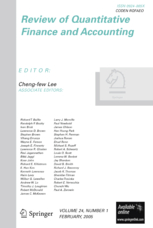
CEO Personality Traits and Compensation: Evidence from Investment Efficiency
in: Review of Quantitative Finance and Accounting, forthcoming
Abstract
<p>We examine the effects of the big five personalities of CEOs (openness, conscientiousness, extroversion, agreeableness, and neuroticism) on their annual compensation. We hand-collect the tweets of S&P 1500 CEOs and use IBM's Watson Personality Insights to measure their personalities. CEOs with high ratings of agreeableness and conscientiousness get more compensation. We further find that the firms with these CEOs outperform their peers due to better investment efficiency. Firms are willing to pay higher compensation for talent, especially for firms with better operations, located in states with higher labor unionization, or facing higher competition in the product market. Overall, CEO personality is a valid predictor of CEOs' compensation.</p>
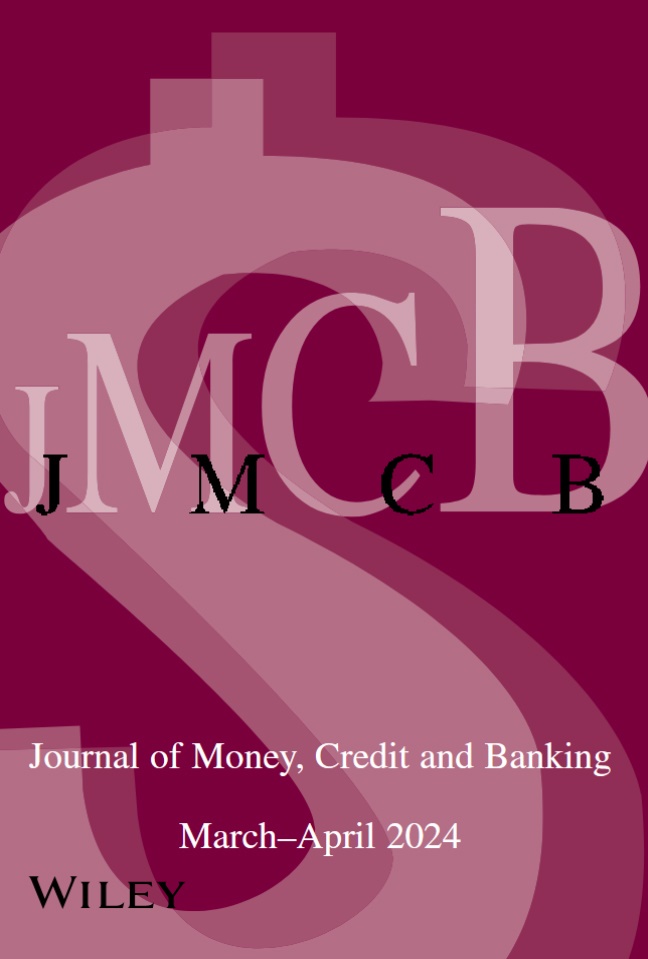
Aggregate Dynamics with Sectoral Price Stickiness Heterogeneity and Aggregate Real Shocks
in: Journal of Money, Credit and Banking, forthcoming
Abstract
<p>This paper investigates the relationship between heterogeneity in sectoral price stickiness and the response of the economy to aggregate real shocks. We show that sectoral heterogeneity reduces inflation persistence for a constant average duration of price spells, and that inflation persistence can fall despite duration increases associated with increases in heterogeneity. We also find that sectoral heterogeneity reduces the persistence and volatility of interest rate and output gap for a constant price spells duration, while the qualitative impact on inflation volatility tends to be positive. A relevant policy implication is that neglecting price stickiness heterogeneity can impair the economic dynamics assessment.</p>
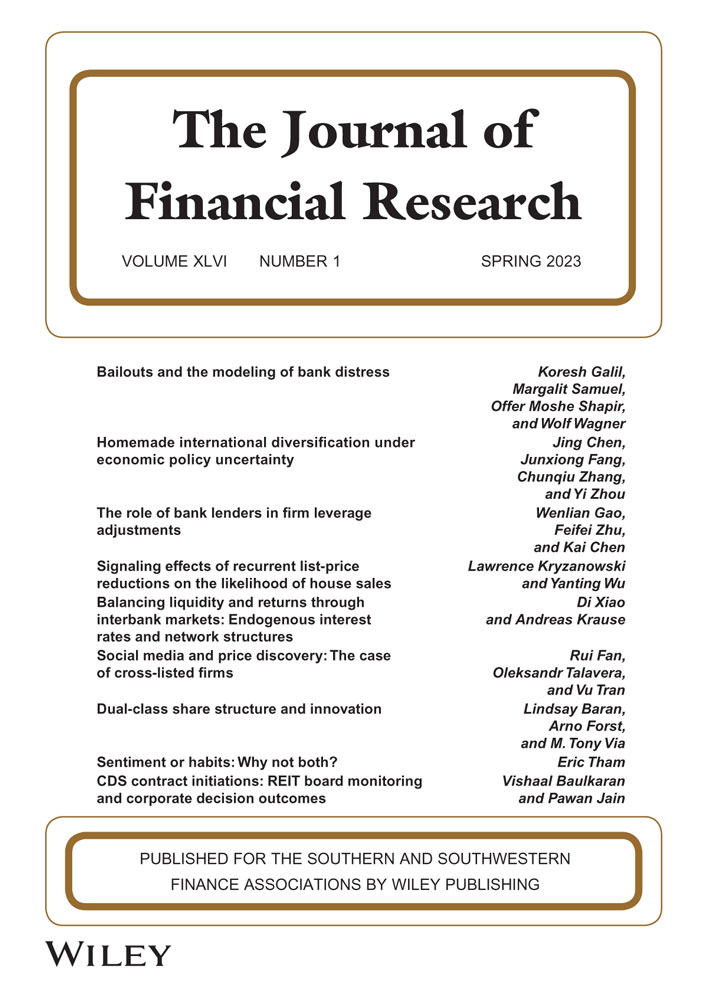
‘And Forgive Us Our Debts’: Christian Moralities and Over-indebtedness
in: Journal of Financial Research, forthcoming
Abstract
<p>This paper analyses whether Christian moralities and rules formed differently by Catholics and Protestants impact the likelihood of households to become overindebted. We find that over-indebtedness is lower in regions in which Catholics outweigh Protestants, indicating that Catholics‘ forgiveness culture and a stricter enforcement of rules by Protestants serve as explanations for our results. Our results provide evidence that religion affects the financial situations of individuals and show that even 500 years after the split between Catholics and Protestants, the differences in the mind-sets of both denominations play an important role for situations of severe financial conditions.</p>
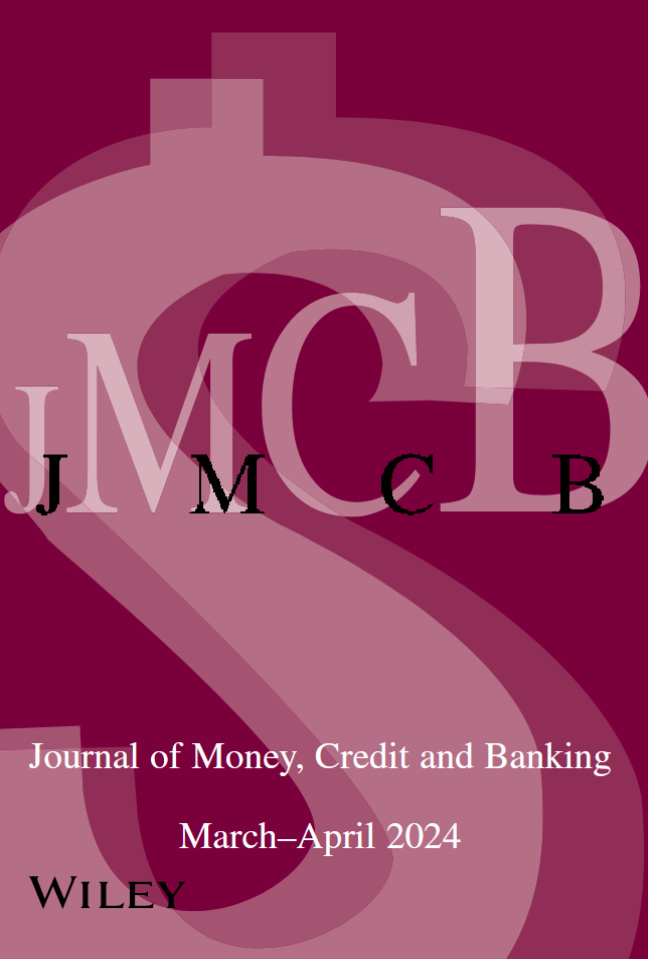
Deposit Competition and Mortgage Securitization
in: Journal of Money, Credit and Banking, forthcoming
Abstract
<p>We study how deposit competition affects a bank's decision to securitize mortgages. Exploiting the state-specific removal of deposit market caps across the U.S. as a source of competition, we find a 7.1 percentage point increase in the probability that banks securitize mortgage loans. This result is driven by an 11 basis point increase in deposit costs and corresponding reductions in banks' deposit holdings. Our results are strongest among banks that rely more on deposit funding. These findings highlight a hitherto undocumented and unintended regulatory cause that motivates banks to adopt the originate-to-distribute model.</p>
Working Papers
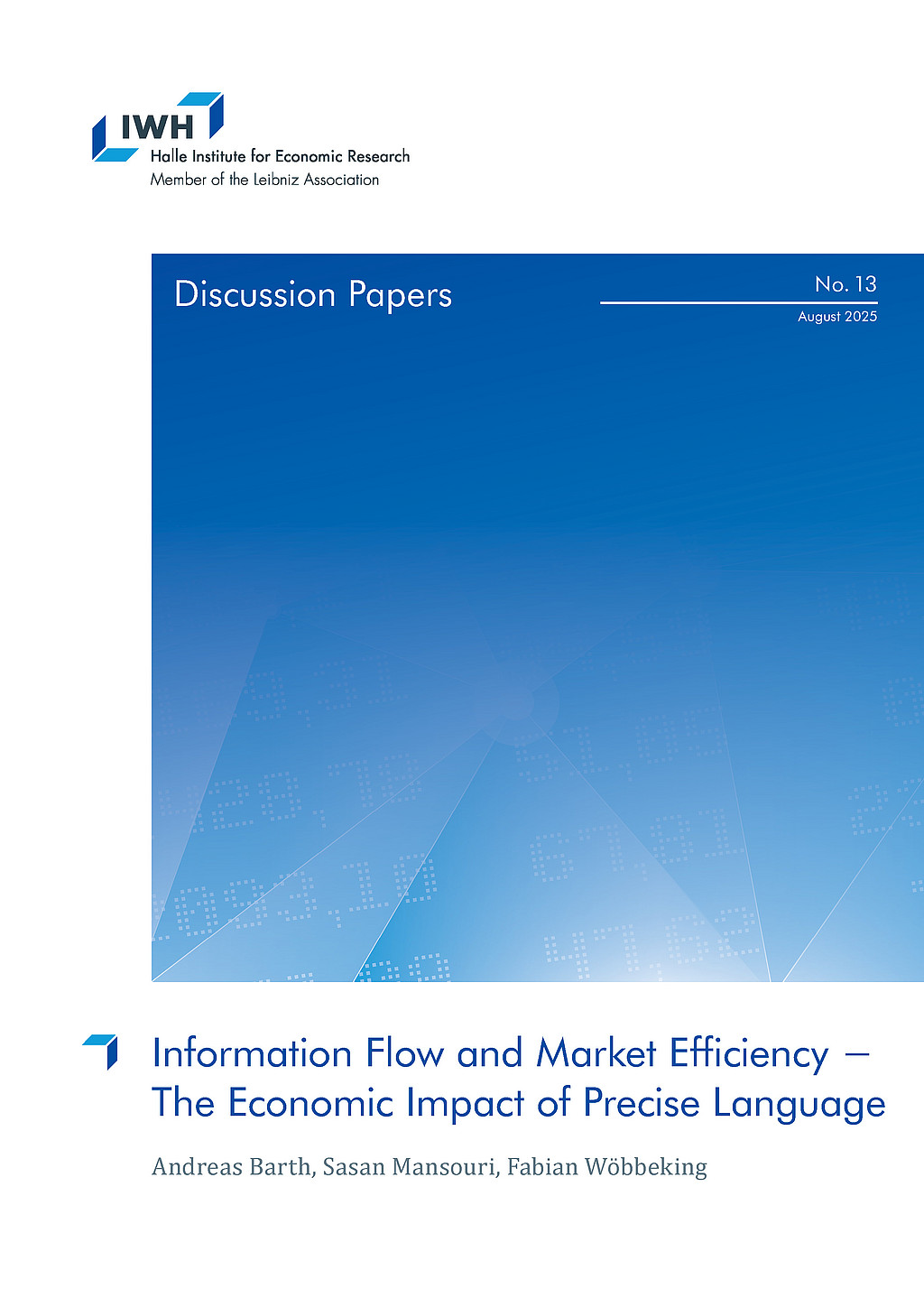
Information Flow and Market Efficiency - The Economic Impact of Precise Language
in: IWH Discussion Papers, No. 13, 2025
Abstract
<p>This paper examines the impact of complex yet precise language, particularly financial jargon, on information dissemination and ultimately market efficiency. As a natural laboratory, we analyze the information exchanged during earnings conference calls, where we instrument jargon with the Plain Writing Act of 2010. Our findings suggest that the Act‘s promotion of plain language usage results in a reduction in complex financial jargon for US firms. However, in contrast to the presumed benefits of accessible language, this reduction in jargon is associated with a decrease in market efficiency, implying that the Act may inadvertently hinder information flow. This finding is particularly important at the juncture where human-generated information is received by machines, which are known to be vunerable to ambiguous inputs.</p>
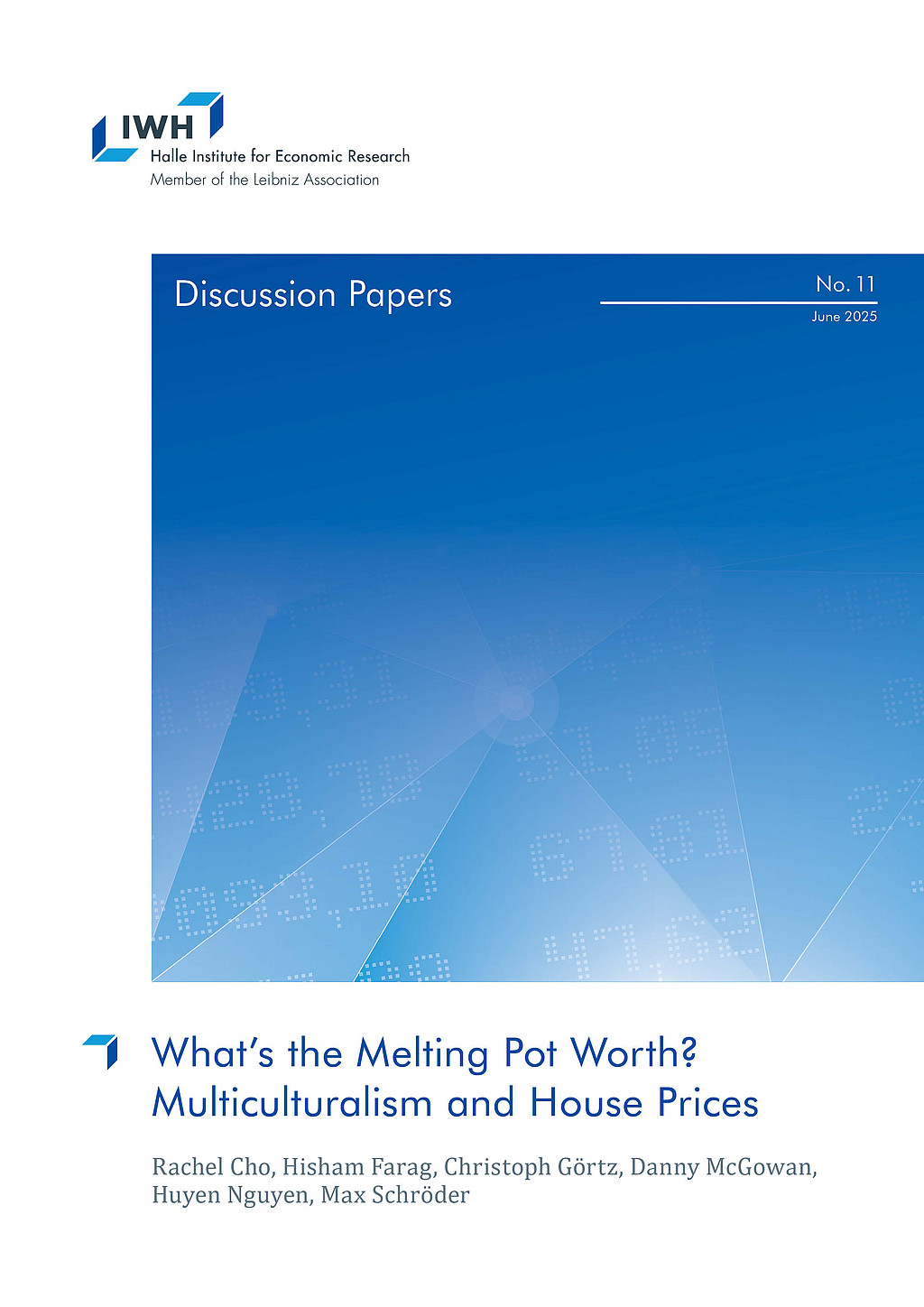
What’s the Melting Pot Worth? Multiculturalism and House Prices
in: IWH Discussion Papers, No. 11, 2025
Abstract
<p>Is there a multicultural neighborhood price premium? We exploit plausibly exogenous variation in British colonization patterns in Northern Ireland during the early 1600s which created neighborhoods of varying religious composition that persists until today. These religious groups are culturally distinct, but are observationally equivalent ethnically and socioeconomically. A standard deviation increase neighborhood-level multiculturalism raises house prices by 9.6%. Multiculturalism raises property prices by increasing asset liquidity and housing demand as a wider spectrum of society demand houses in these areas. The findings and mechanism contrast sharply with prior evidence showing negative relationships due to homophily, social networks, and identification challenges.</p>
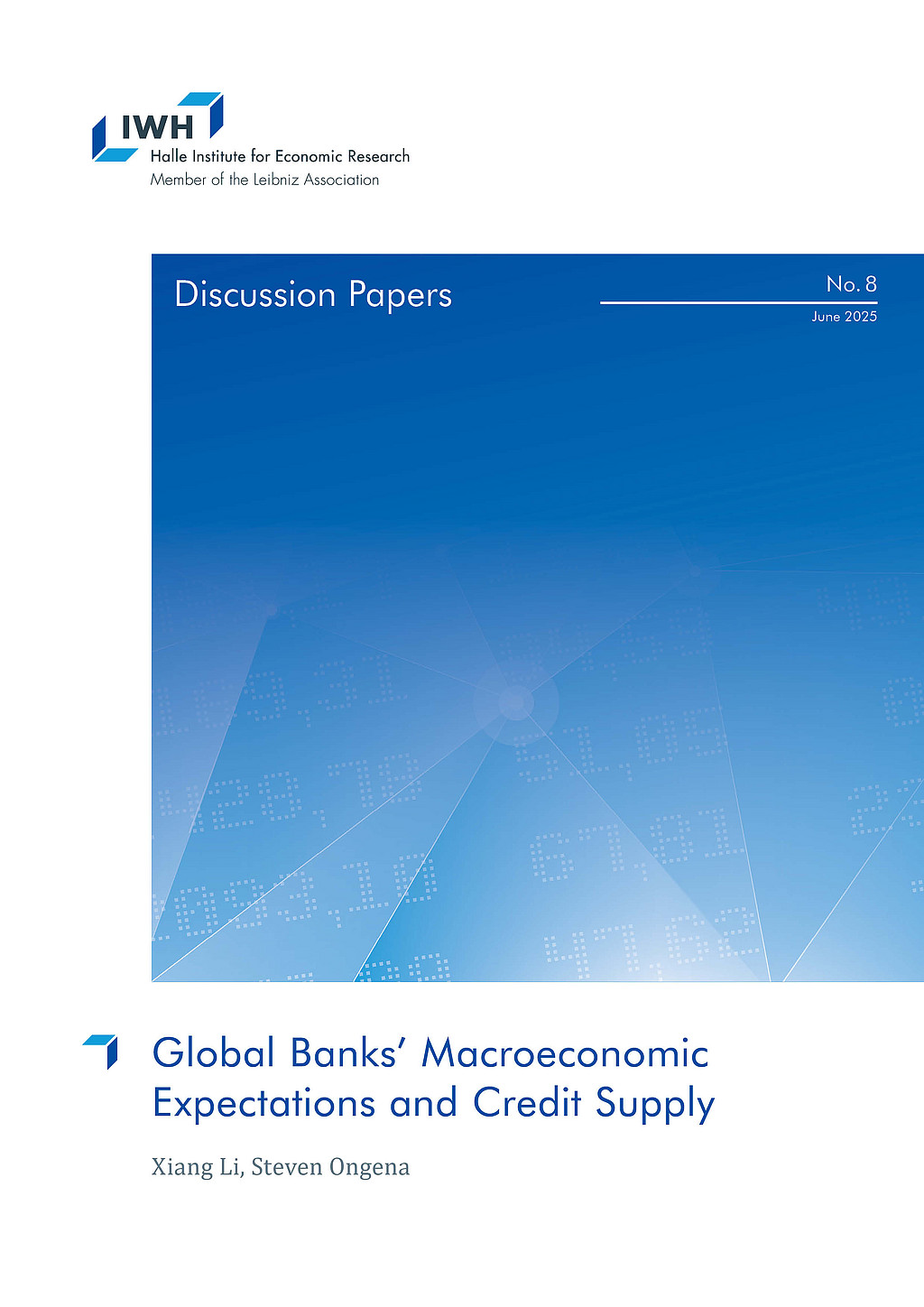
Global Banks’ Macroeconomic Expectations and Credit Supply
in: IWH Discussion Papers, No. 8, 2025
Abstract
<p>We investigate how global banks’ macroeconomic expectations for borrower countries influence their credit supply. Utilizing granular data on varying expectations among banks lending to the same firm at the same time, combined with an instrumental variable approach, we find that more optimistic GDP growth expectations for a borrower country are strongly linked to increased credit supply. Specifically, a one standard deviation increase in a lender’s GDP growth expectation for the borrower’s country corresponds to an increase of 8.46 percentage points in the loan share, equivalent to approximately 0.75 standard deviations of the loan share and $75.35 million in loan amount. In contrast, global banks’ short-term inflation expectations do not show a significant impact on their credit supply.</p>
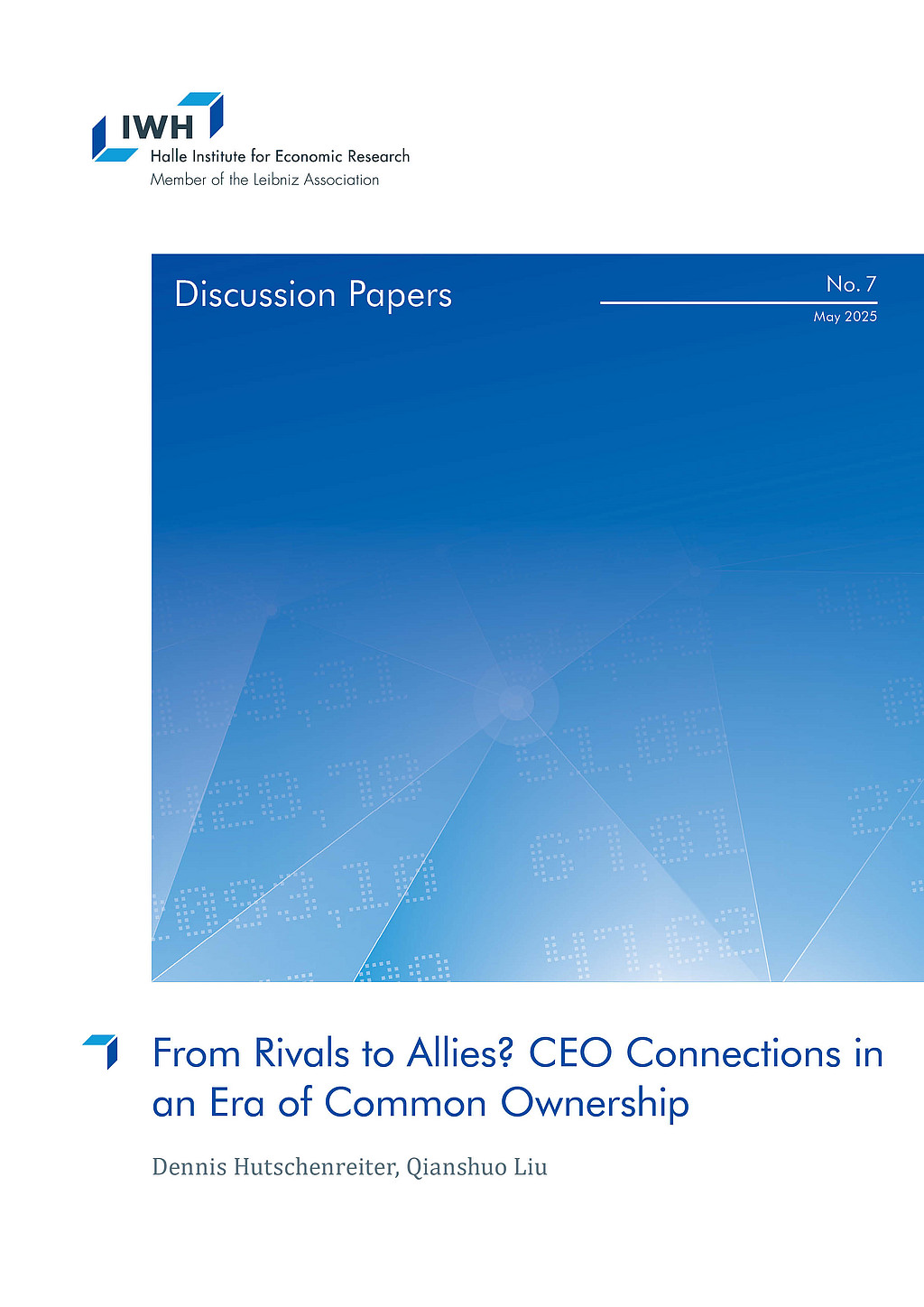
From Rivals to Allies? CEO Connections in an Era of Common Ownership
in: IWH Discussion Papers, No. 7, 2025
Abstract
<p>Institutional common ownership of firm pairs in the same industry increases the likelihood of a preexisting social connection among their CEOs. We establish this relationship using a quasi-natural experiment that exploits institutional mergers combined with firms’ hiring events and detailed information on CEO biographies. In addition, for peer firms, gaining a CEO connection from a hiring firm’s CEO appointment correlates with higher returns on assets, stock market returns, and decreasing product similarity between companies. We find evidence consistent with common owners allocating CEO connections to shape managerial decisionmaking and increase portfolio firms’ performance.</p>
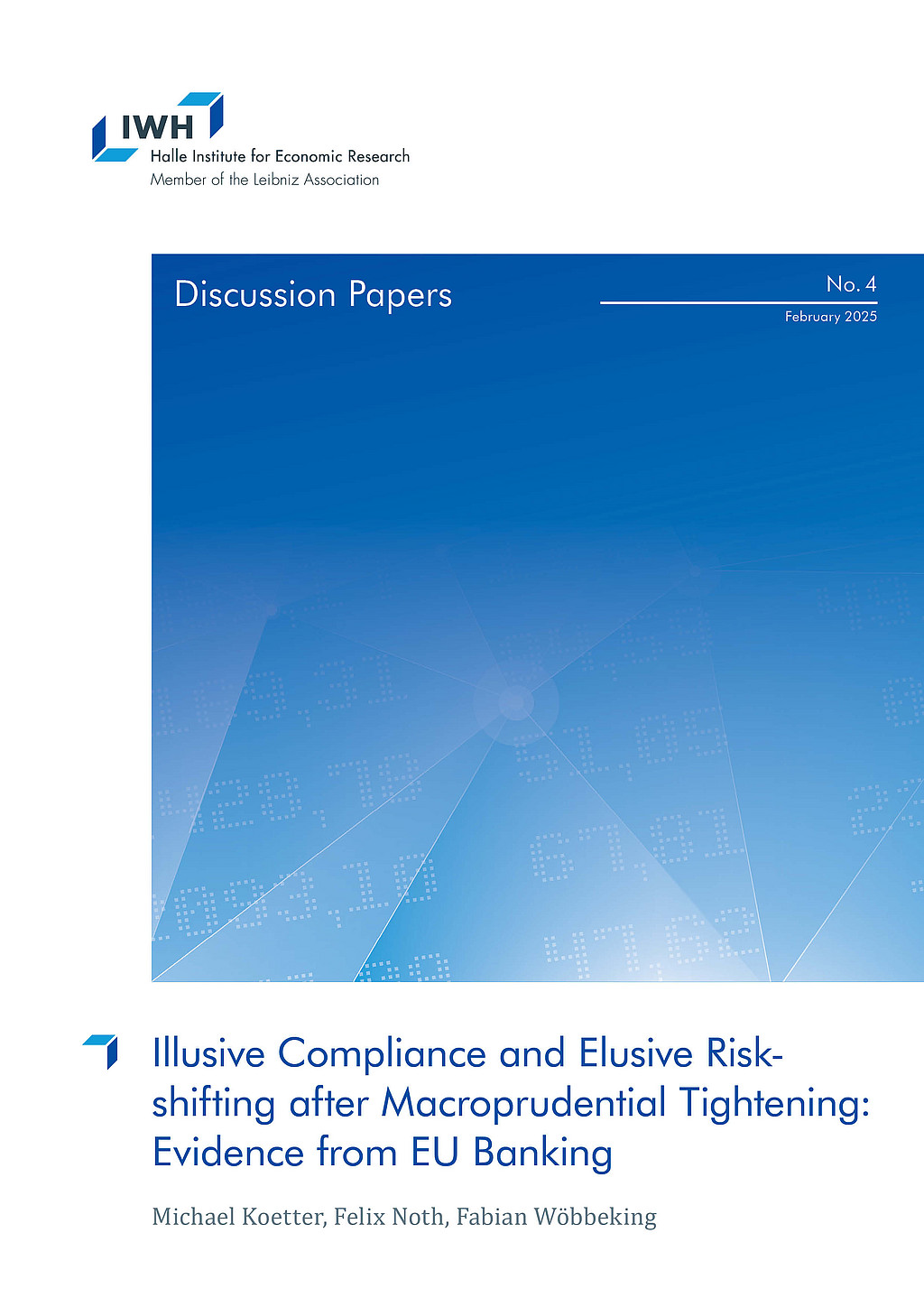
Illusive Compliance and Elusive Risk-shifting after Macroprudential Tightening: Evidence from EU Banking
in: IWH Discussion Papers, No. 4, 2025
Abstract
<p>We study whether and how EU banks comply with tighter macroprudential policy (MPP). Observing contractual details for more than one million securitized loans, we document an elusive risk-shifting response by EU banks in reaction to tighter loan-to-value (LTV) restrictions between 2009 and 2022. Our staggered difference-in-differences reveals that banks respond to these MPP measures at the portfolio level by issuing new loans after LTV shocks that are smaller, have shorter maturities, and show a higher collateral valuation while holding constant interest rates. Instead of contracting aggregate lending as intended by tighter MPP, banks increase the number and total volume of newly issued loans. Importantly, new loans finance especially properties in less liquid markets identified by a new European Real Estate Index (EREI), which we interpret as a novel, elusive form of risk-shifting.</p>



















